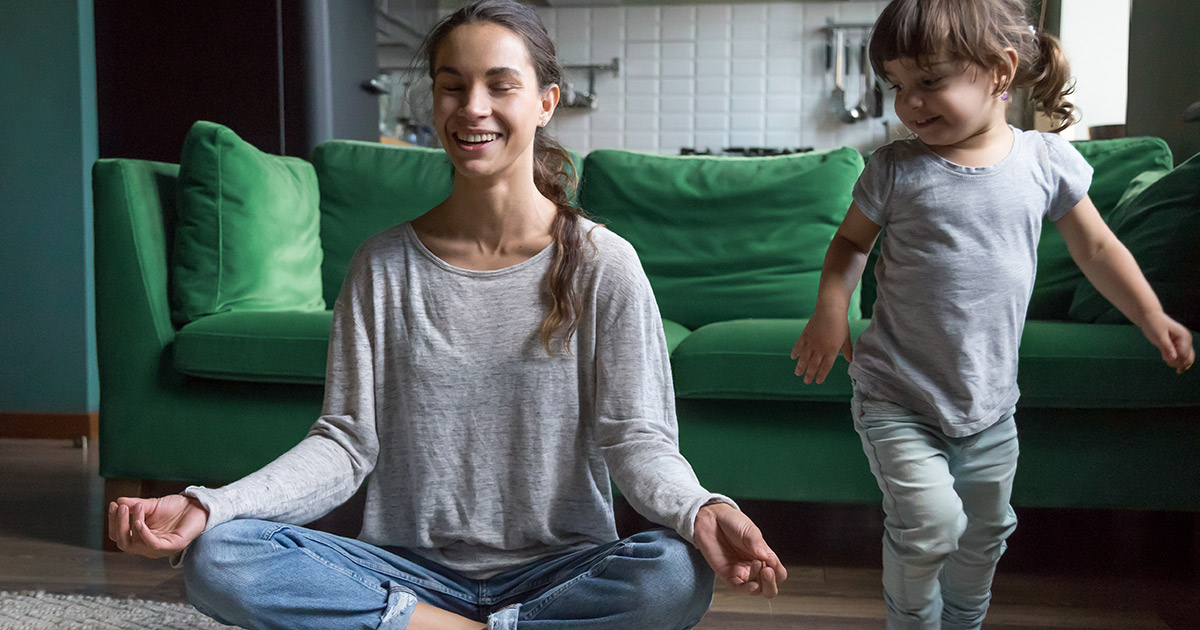
Stress can do a number to our bodies and can decrease our body’s ability to fight off becoming sick by weakening our immune systems. Stress can creep up on us little by little or can hit us like a wall of bricks. It is important not only to recognize when we are feeling stressed but also how to engage in activities that help to reduce that stress.
How do children handle stress?
Kids naturally will seek out experiences that calm their nervous system (if given the space to). Try to recall when you are playing peek-a-boo with a baby. One minute they are cooing and smiling and the next minute they are looking away? This is a form of self-regulation when they become overstimulated and need a break from the attention or are starting to feel tired. Fast forward to when they are toddlers, most little ones will gravitate towards soothing activities such as digging in the sand, moving objects around, running or exploring their surroundings outside or simply coloring.
What can I do now?
We can all learn something from one another. As adults, we can look to our little ones for inspiration and, in return, we can help offer some new tools for them to carry through life. Consider some of these activities below to try with your family to help with decompressing:
1. Take it outside
Being outside can help to reset and recharge. Explore your backyard, chase around some bubbles, build a fort, get a game of tag going, or collect nature’s treasures by going on an outdoor scavenger hunt.
2. Let it out
What better way to soothe one’s nervous system than through sensory play? Getting tactile or using your hands is a fun and creative way to reduce stress. Break out the Play-Doh (or make your own) and roll, flatten, and pound your way to a calmer self. Have access to sand or dirt? Build a sandcastle or make a mud pie. Need more color? Try finger-painting. Have some yarn and beads? Create some fun new necklaces together – just get your hands working on something.
3. Move it
Not only can exercise decrease stress and anxiety, but it can help build your child’s strength and improve their sleep. Enough said, right?
Challenge your kids to a dance-off or take a stroll around the neighborhood. Dare your family members to see who can do the most jumping jacks in a couple of minutes. It doesn’t take much.
4. Breathe it out
Do you notice that when you are feeling a little anxious, your breathing seems to change? When we feel tense, we start to take quick shallow breaths. Slower, deeper breaths, however, prove more effective in reducing stress. Help your kids learn how to breathe in slowly through the nose, hold it for a couple of seconds, and then slowly exhale through their mouths. Practice with them a couple of times until they get the hang of it. Deep breaths for kids of all ages can help them calm down or focus. Try to incorporate the practice the next time your child feels angry or frustrated.
5. Squeeze it out
Squeezing a ball, hugging a favorite teddy bear, or wrapping your arms around your pillow is an easy way to release some tension. When we get too overwhelmed or feel under pressure, our bodies react by getting tight and tensing up. Redirecting a child’s hands into a physical action such as hugging or squishing something helps them focus on something other than what is making them tense up.
Throughout any of these activities, it is helpful to encourage your kids to identify what feelings they are experiencing before, during, and after the activity. This helps your kids identify where they might be feeling stressful emotions within their bodies. Use the Mind-Body Connector Student Activity Sheet to help kids better identify how their bodies might be indicating how they are feeling.
Brisa Ayub is the Senior Global Director of Marketing at Wonder Workshop where she creates educational programs directed at bringing coding, robotics, and creative problem-solving to educators and students. She has a history of creating educational content and award-winning programs and games that have been implemented in schools across the United States and globally as the former Director of Educational Programs at Common Sense Media. Brisa earned her graduate degree in psychology and has worked with adolescents and young adults around addictive behaviors prior to the edtech space.
Categorized as: Tips for Teachers and Classroom Resources
Tagged as: Toolkit: Stay Healthy, Trauma and Resilience
